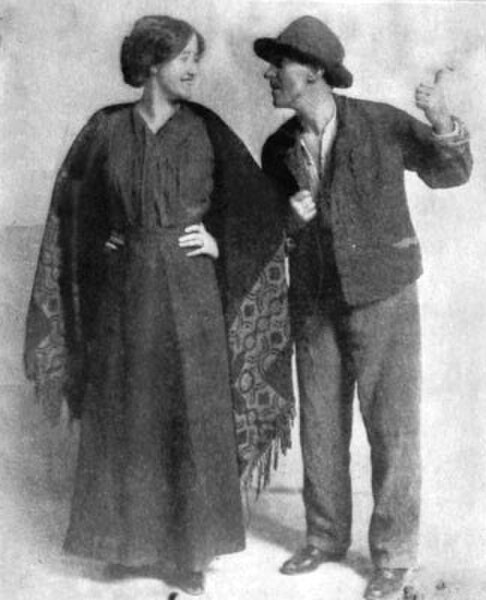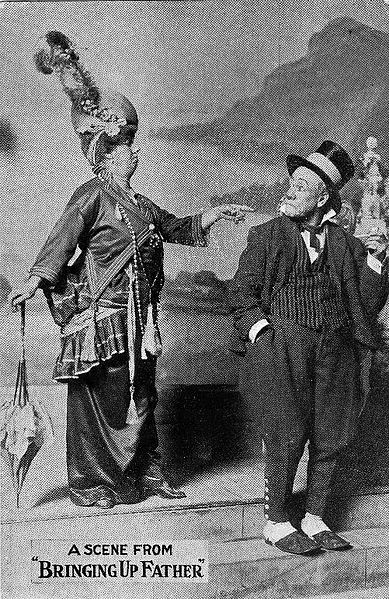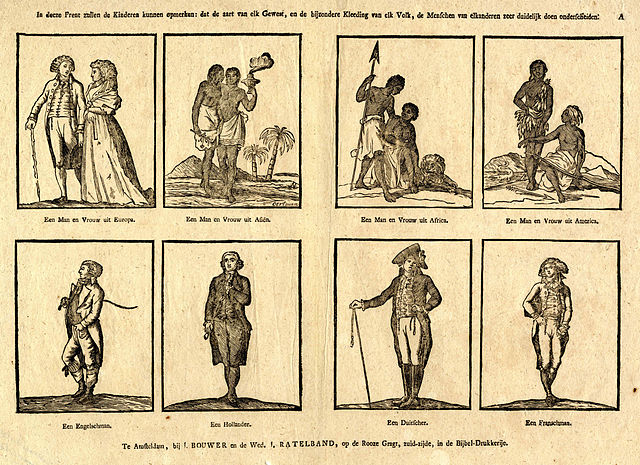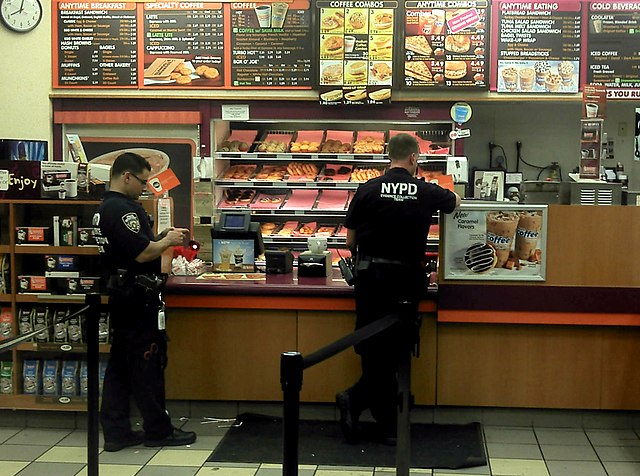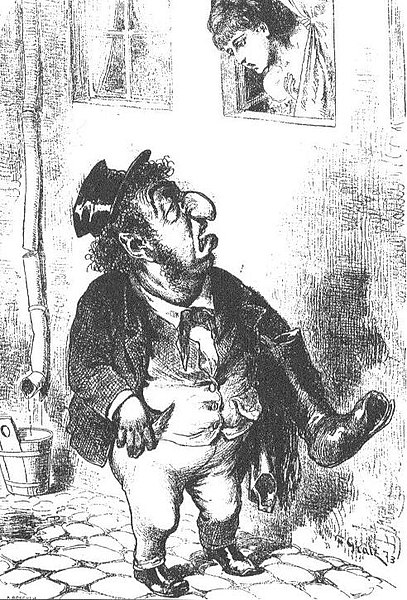Stage Irish, also known as Drunk Irish, or collectively as Paddywhackery, is a stereotyped portrayal of Irish people once common in plays. It is an exaggerated or caricatured portrayal of supposed Irish characteristics in speech and behaviour. The stage Irishman was generally "garrulous, boastful, unreliable, hard-drinking, belligerent and chronically impecunious". This caricature includes many cultural outlets, including the stage, cartoons published in Punch and English language clichés, including terms such as "Paddywagon" and "hooligan".
Irish actors Sara Allgood ("Widow Quin") and J. M. Kerrigan ("Shawn Keogh"), in The Playboy of the Western World, Plymouth Theatre, Boston, 1911. The play was attacked for replaying the insulting stereotype of the drunken, boasting, belligerent Irishman.
Maggie and Jiggs in a scene from the 1914 play Bringing Up Father
In social psychology, a stereotype is a generalized belief about a particular category of people. It is an expectation that people might have about every person of a particular group. The type of expectation can vary; it can be, for example, an expectation about the group's personality, preferences, appearance or ability. Stereotypes are often overgeneralized, inaccurate, and resistant to new information. A stereotype does not necessarily need to be a negative assumption. They may be positive, neutral, or negative.
An 18th-century Dutch engraving of the peoples of the world
Police officers buying doughnuts and coffee, an example of perceived stereotypical behavior in North America
An antisemitic 1873 caricature depicting the stereotypical physical features of a Jewish male
A magazine feature from Beauty Parade from March 1952 stereotyping women drivers. It features Bettie Page as the model.

